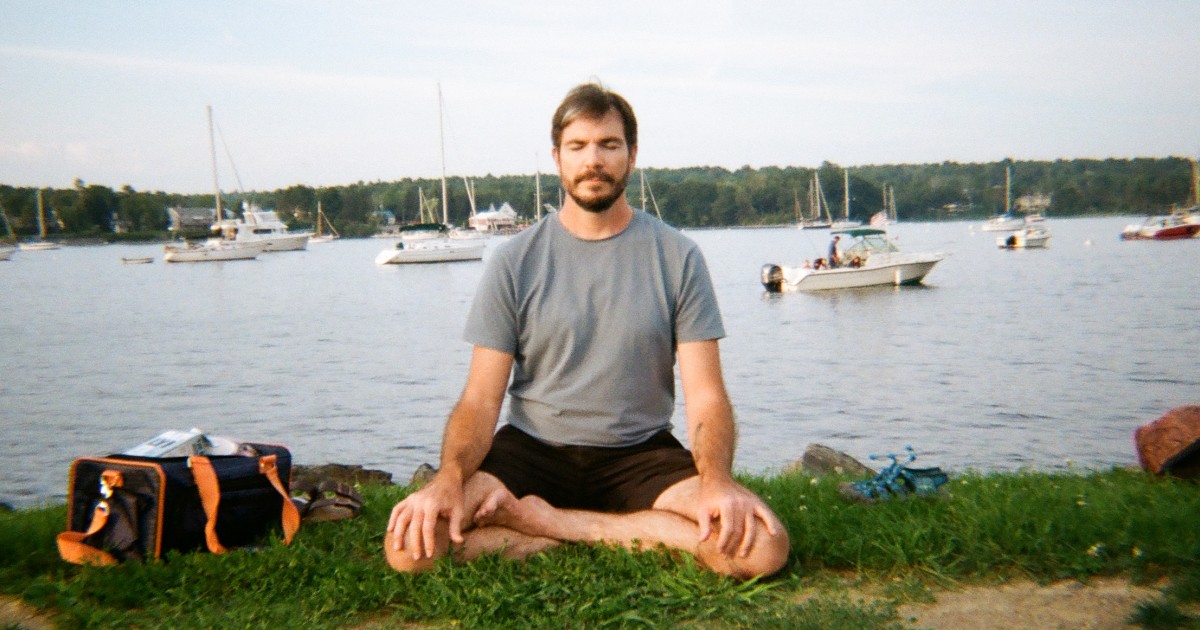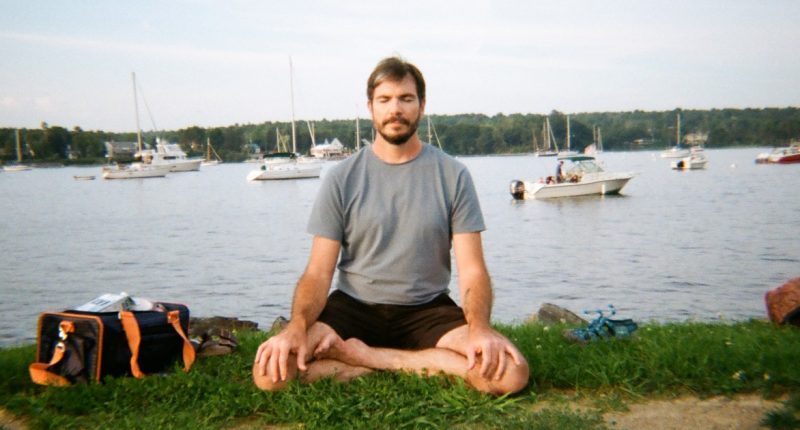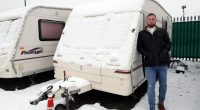
“It was a good combination of risk and sort of communicating emotional truth. So I was able to dig really deep, and say exactly how I felt in the moment,” he said.
His outburst went viral. His employer, NASA, sent him a letter expressing concern over his two arrests, he says.
(“I’m speaking on my own behalf and that has to be super clear,” he said in an interview. “Not as a NASA climate scientist. That’s really important for retaining my job.”)
He worries a third arrest could cost him.
“Do I keep doing science? Or do I, you know, keep engaging in risky activism and maybe lose that job?” Kalmus said.
Meanwhile, Kalmus has grown frustrated that more scientists aren’t agitating at protests and willing to face arrest. And his view of our climate predicament has grown increasingly dark.
“It feels like it’s worse than I thought it would be in 2023,” Kalmus said, pointing to record-low Antarctic sea ice and record-high sea surface and land temperatures as signs that Earth systems could be shifting more quickly than the scientific community can grasp.
In recent years, climate change has begun to sting Kalmus’ personal life.
In summer 2020, he sickened himself hiking in a California heat wave, then watched a wildfire burn a few miles from his California home, spewing smoke that left his voice raspy and his head aching. The searing temperatures killed a dogwood tree in his front yard. His productivity slowed — he couldn’t focus on science.
Kalmus had dreamed of making a life in the Pacific Northwest, which he felt might be buffered from the worst of climate change. That same year, a heat wave — considered nearly impossible if not for the influence of climate change — seared the region for three days, killing hundreds of people, buckling roadways and sending overheated baby birds jumping from their nests and to their deaths.
“That’s when I realized that no place was safe,” Kalmus said. His family relocated to North Carolina, for his wife Sharon’s work, but the experience planted a seed:
If he couldn’t stop climate change and he couldn’t avoid it, could he at least find a better way to survive it?
Life at the homestead
Kalmus knew what would not work.
“I very quickly eliminated the idea of being a prepper — you know, hoarding beans and ammunition,” he said.
But he found himself daydreaming of a simpler life, where he could keep bees, grow vegetables and press cider to drink on a Friday night and live closer to the land.
Visiting the Possibility Alliance, a sprawling 11-acre homestead filled with fruit trees, goats, chickens and a garden, allowed him to scratch an itch he’d entertained for much of his adult life.
The Hughes family, which operates the homestead, and its guests live largely without electricity or modern technology.
The family of four doesn’t fly because of climate concerns and also doesn’t own a car. Their main use of fossil fuels is to take passenger trains to climate protests.
They try to eschew capitalism and have built, instead, a “gift economy” where resources are shared and skills are traded among neighbors in this tiny corner of Maine. They grow much of their own food, hold trainings for climate protesters and plan to host refugees as climate disasters worsen.
Nights are illuminated by candlelight. Neighbors drop by without notice.
“We’ve created what existed 100 years ago,” Ethan Hughes said.
On a steamy August morning, Kalmus found himself huddled around a faded picnic table at the center of the homestead in Belfast, Maine, sipping his coffee with a rare breed — people as alarmed by climate change as him.
Source: | This article originally belongs to Nbcnews.com









